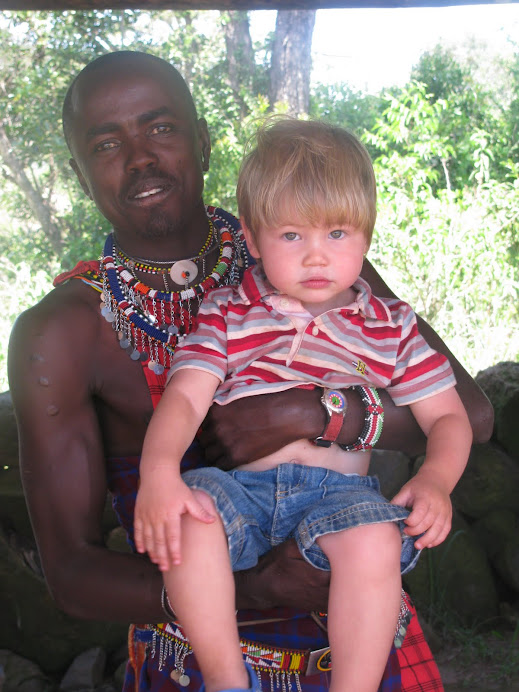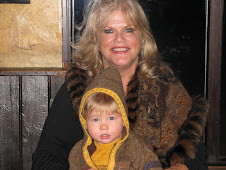It’s a name that settles on the lips like a kiss, or some kind of prayer, or a simple mantra that steadies the mind and eases the heart. Lamu. A whisper that belies the glamour meshed with the grittiness that is the island’s soul. And her birthright.
Old Town has been UNESCO World Heritage site since 2001. Exporting an exotic mix of ivory, mangrove, tortoisehell and spices, along with thousands of unfortunate African slaves, Arab settlers established a booming trading post here as early as the 14th century. Even today, the feeling of trade winds brushing your brow and an island ideal of a classic trade route are alive and well.
“A man without a donkey, is a donkey,” goes the Swahili proverb. True to form, donkeys weave like drunkards through the pencil-thin alleyways carrying basket loads of water, petrol, foodstuffs, sand and bricks. They collide with prehistoric wooden carts which hog the narrow streets, making passage nearly impossible, a pretzel twist of limbs. Rough burlap is tossed across donkey backs where they are ridden on the beachfront; they hurtle forward in a line or pack, egged on by the sticks of their riders. These donkeys – beige, grey, fudge brown with black, prisoner-like stripes wrapping around their ankles -- all offer up the same expression for owners and visitors alike: mournful. Mourning as if they’ve lost their way and will never find home. Their futile call to the wild is more of a honk than a bray, a kind of wailing that makes me believe that when the muzzein calls this Muslim world to prayer, it is really the braying of the muzzein and the calling of the donkeys.
Exquisite and elaborately-carved wooden doors to hidden homes keep the outside swell of Lamu days and nights at bay. Men push solemnly through the streets in full-length white robes called khanzus and kofia caps. Women, tucked away in the columnar secrets of their black burquas or purdah, flash their dark brown eyes, stepping assuredly through the press of the footpaths. Nervous tourists wade like buoys in a storm. An entire school of children spills forward.
Here, there are no roads. A neighbor tells me that there is one police car (who would it chase and where?), but I see two vehicles, a dusty red tractor and a sea-bitten ambulance full of slight young men smoking. Throngs of cats – beach cats! – haunt the port in search of fishermen’s bounty. They lurk in the doorways of shops like guard dogs, licking their paws and chewing their tails.
I’ve never stayed in Lamu proper before, only out around the bend about a 10-minute speed-boat ride away at Shela. Its 12-kilometer beach is one of the most celebrated in the world -- creamy sand, tawny dunes, camels trailing along its endlessness. The Peponi Hotel there has been hailed as one of the 10,000 Places to See Before You Die and I believe it. The hotel practically spills into the water, a causeway in the Indian Ocean between Manda and Lamu islands. The white terraced rooms overlook smidges of green, aching lawns and majestic palms; their Old Pals, a signature drink, are the mainstay of any happy hour; and the clientele ranges from the ultra famous (Princess Caroline lives two doors down) and the infamous (a widow alleged to have had her husband killed several years ago), to lively local color (assorted beach boys looking for handouts from lonely European ladies and Clementine, the head of a turtle sanctuary on one of the outer islands).
Barbara, a designer friend of mine who is as feisty as she is fine of heart, is our impetus. Along with her three kids under six, she has whisked Tiger and me away from Nairobi for a few days’ escape. She and her husband have a gorgeous, old-style Swahili townhouse complete with coral walls, limestone, wooden accents from old dhows, a plunge pool and rooftop terrace. In short, a tall slice of heaven. And it feels like just the right place for spending time in town.
On a fine yet misty day, we share stories about being Irish; she is a Belfast girl whereas my family is from Tipperary. “We could be in Ireland now,” Barbara confides, gesturing to the moody skies, her eyes flashing as green as the countryside from which we both hail. “You look this way and it’s Ireland on a bad day, or the other way, on a good day.” And she is so right as the peninsulas of the Lamu archipelago jut into the sea, clouds low, rain thundering on our hatless heads, sun brewing. The kids squeal and splash in the emerald sea, oblivious as only children can be.
We do all the things you’re supposed to do at the beach, especially in Lamu. Visit the old fort where bats hang from the ceiling in the middle of the day. Take pictures of our children sprawled across canons along the beachfront. We savor flavors of all kinds; Mohammed, the cook, makes us ginger and garlic crab that’s silky-smooth on the tongue. We sip Old Pals at Peponi after a long, blazing day on Diamond Beach. Eat too much pizza, drink too much wine, laugh too much over silly old Disney cartoons that the kids can’t get enough of (“Laaaambert, the sheepish lion, Laaaambert, he’s always trying…”, a ditty concocted for a cub who’s accidentally dropped into a herd of sheep by a stork and strives to become one of them). Out at the rock pools – charcoal-black, unforgiving volcanic formations from the ancient past – we watch small, slick, oily-looking crabs skitter and scoot across their terrain, impossible to capture as they slide in a blink into their hidey-holes.
We hang out at a coolly elegant boutique hotel next to one of the old stone jettys, run by an effortlessly warm-hearted couple from Belgium. The husband is a chef of note whose jumbo prawns (the size of small lobsters), sauteed in olive oil and garlic, is one of the most delicious dishes I’ve ever tasted. The side order of Belgian twice-fried chips served with aioli stops my heart. Twice.
Lamu nights are my favorite nights I’ve had for a long, long time. The swell of Swahili song and Arabic voices and exotic music ping pong along the rooftops; televisions sizzle. Two blocks away, the boats signal their to and fro; the cats cradling in doorways call excitedly to their neighbors; breezes tussle long hair and canopies and mosquito netting. Goats bleat and the donkeys hoof it through town. Our children sleep like the dead, while Barbara and I are alive with something only the night can bring, darkness and enlightening.
My last evening, I am on my own and decide to stop at Peponi for one final Old Pal. Ndegwe, Barbara’s houseman, has taken the children home for supper and a bath after a brief beach outing; the tide had come in and there was little room to sit unless we climbed the dunes. Across from me, a backpacker sits down, orders a Dawa, and asks my name. He is so impossibly young and smiling, with tufty blonde hair, dark teepee-shaped brows, and an excitable manner. A photographer who’s been shooting stills for different camps around Kenya, he plans to go to law school in a year. Why? It’s the family business. I want to go take care of what my family has built. Why? Why don’t you tell me about that drink you’re having? We conclude it’s vodka, lime juice and grenadine with a soda water topper, but we can’t be sure of Peponi’s secret recipe.
He’s eager and enthusiastic about taking a dhow back to Lamu town where he’s also staying, so we hop into the one that’s come back for me. I find him to be serious, funny, unguarded and think, how refreshing and surprising the night can be. At one point, he tries to sit down next to me on the boat and we nearly tip over. “But you have the best view!” he exclaims. And he is right. For lights are spilling from the terraces along the whole way station as we go, boats lit as well with fires and torches, and Venus hangs in the sky like a crystal eye. The evening star, my companion points out.
And still, despite the music and the glow of the Lamu nights, my favorite memory comes from yesterday afternoon. Our children, mine and Barbara’s, taking in the reach of the beach like so many starfish, their arms striving to capture air and water, tide and time as they run from the surge of surf pulled like taffy between sun and moon. My son Tiger runs across the shallow waters towards a rock pool, running naked across the shifting sands of Manda Island as if his happiness depended on it, running butt naked save for his electric lime green Crocs that splash and splash in a rhythm that belongs to Lamu at large.
Sunday, September 19, 2010
Subscribe to:
Post Comments (Atom)










No comments:
Post a Comment